
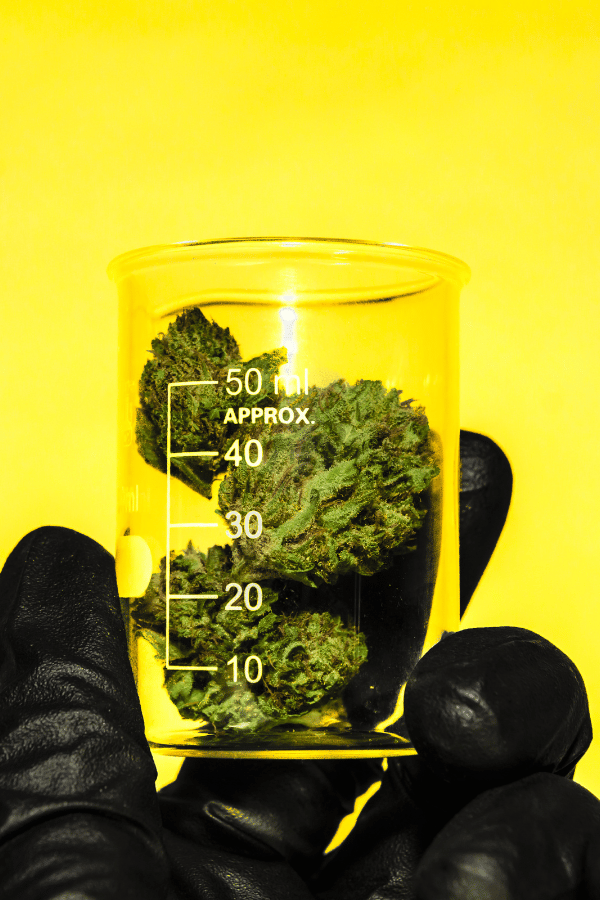
How long does Weed stay in your system?
How long does weed stay in your system?
While drugs like alcohol completely disappear within hours, compounds in cannabis linger for days. Understanding what impacts cannabis staying in your system longer can help you make informed choices for using cannabis responsibly.
Though it may not impair how alert you are, there are certainly some ways cannabis impacts our ability to operate machinery or perform. It’s a safe bet to avoid getting behind the wheel after consuming an edible, especially high-dose products.
Beyond safety, there are still some instances where employers may require drug screenings - despite cannabis being legal in over 20 US states.
Knowing how long cannabis remains in your system could be valuable information for anyone:
If you are participating in a drug screening and have consumed cannabis
If you are having a major surgery where anesthesia needs you to take a break for safety.
If you currently take other medications that may interact with cannabis
If you’ve experienced unwanted effects of cannabis and you are curious how long it stayed in your body.
In this article, we will uncover some fascinating truths and technicalities about how long cannabis stays in your system, what products remain longer than others, and how you can properly detox cannabis if needed.

How long does weed stay in the bloodstream?
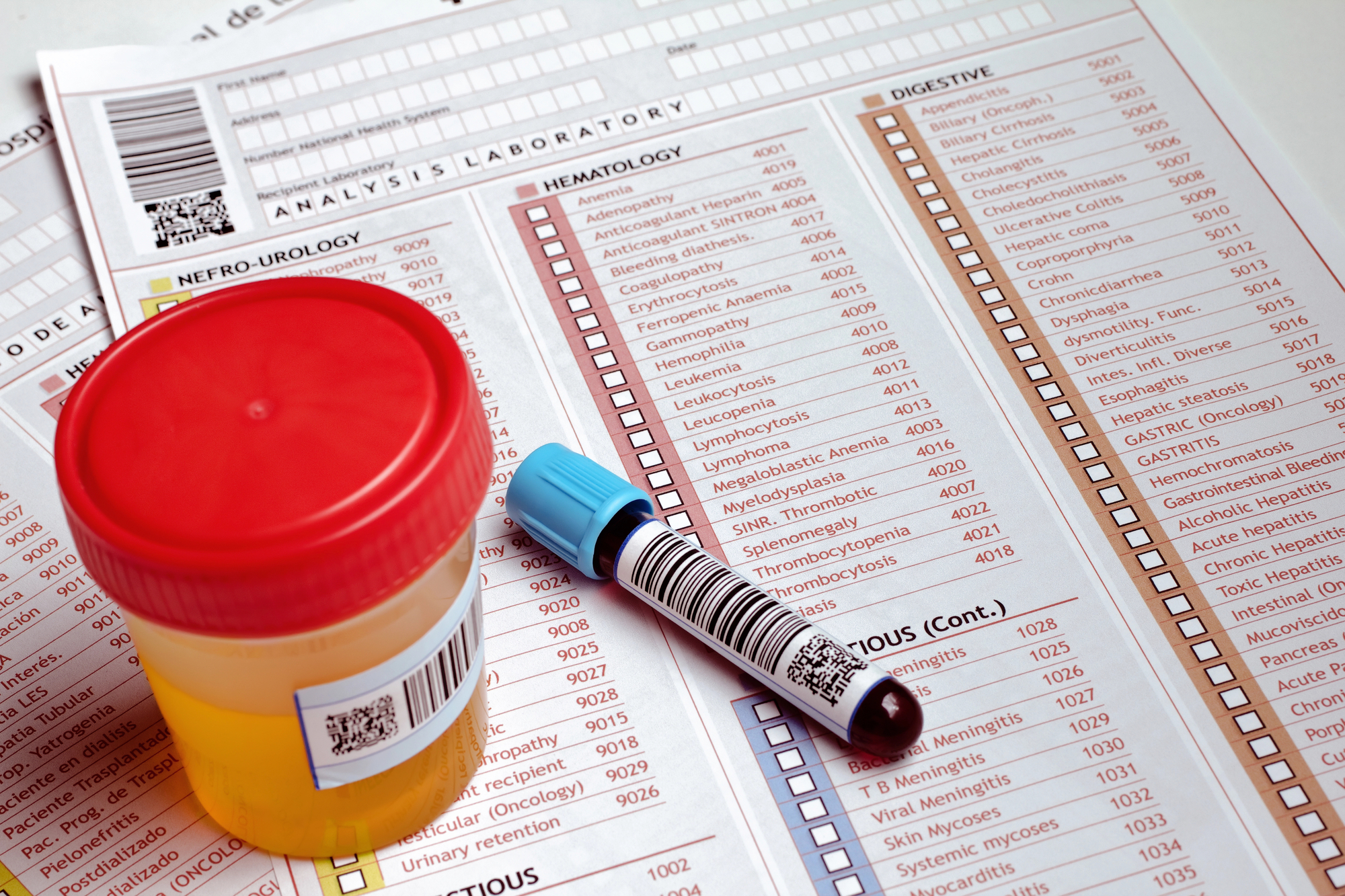
No matter what form of cannabis you consume, all cannabinoids travel through the bloodstream to reach the parts of our nervous system that interact with these active compounds.
THC is absorbed into the bloodstream and temporarily stored in organs and fatty tissues when smoked or ingested.
The duration of time weed stays in the bloodstream is dependent on dose, frequency of use, and your unique biology, though we do have some general understanding based on averages on drug test results. These screenings are designed to detect THC and THC metabolites present in the body’s tissues.
Factors such as physical activity, diet, genetic factors, and body fat percentage significantly often influence your metabolic rate, affecting the duration weed remains detectable in your system.
You may be curious: how long will one smoke session stay in your system? Will this range vary depending on how frequently you consume weed?
The answer to these questions begins with how the body processes the active compounds in cannabis, and it all starts with metabolism.
How we metabolize cannabis
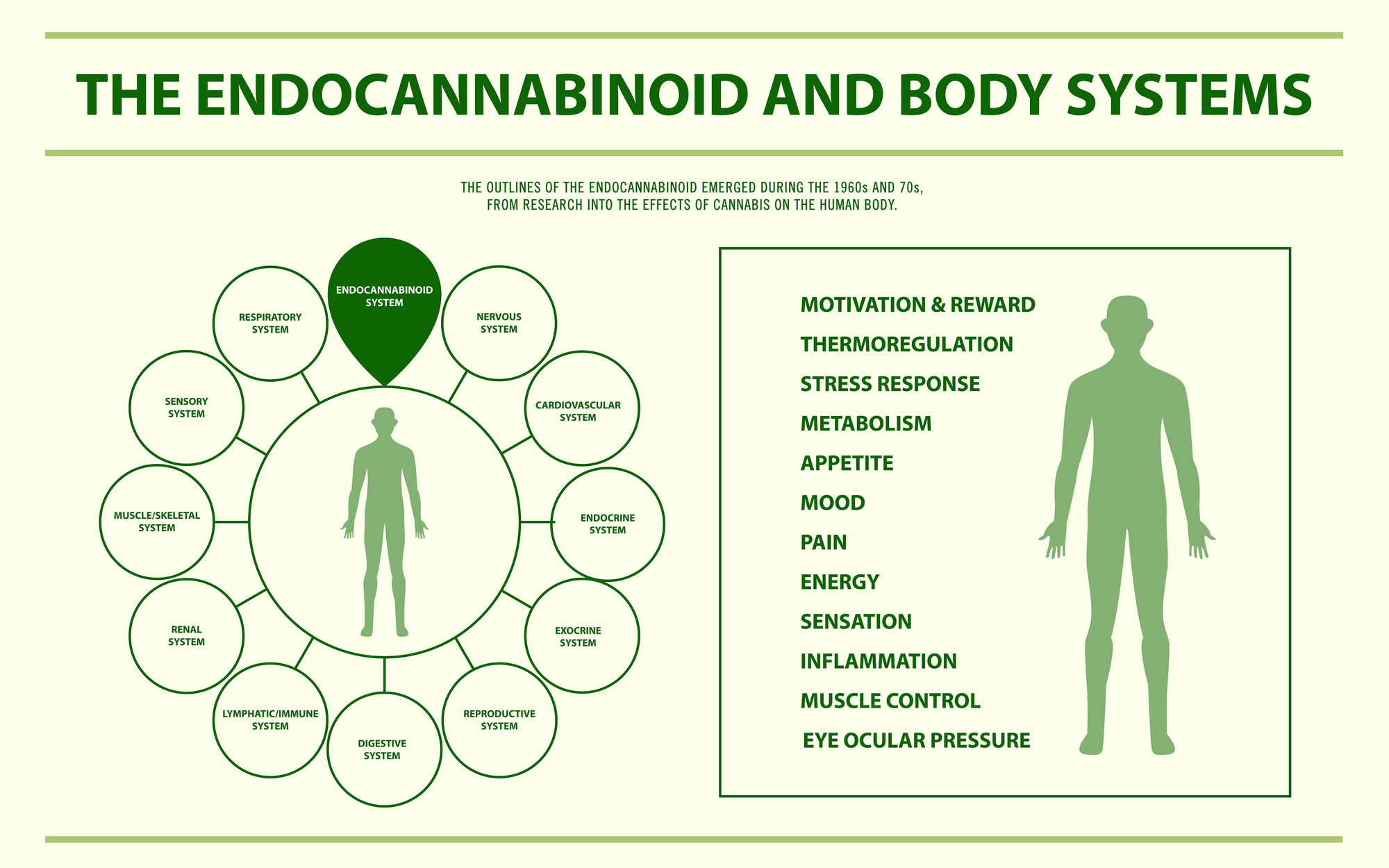
Depending on how you prefer to consume cannabis, the body metabolizes it differently depending on whether it is inhaled, ingested, or absorbed (topically). Each has a different half-life in the body, leading to different lengths of effects and presence in the body.
In the same way we all process fats and sugars differently, there are deviations in how we metabolize cannabis. Genetic or biological differences between people could mean faster or slower breakdown of cannabis in the body. This may look like someone experiencing more mild or strong effects or a shorter or longer duration of cannabis in the body.
It is currently understood that ingesting edibles and sublinguals of cannabis will remain in your system longer than most other forms. When ingesting cannabis, the active components of cannabis, like THC, are metabolized in the liver. Molecules like CYP2C and CYP3A convert THC through an enzymatic process to 11-OH-THC (also psychoactive) and 11-COOH-THC (non-psychoactive). Over 65% of the cannabis consumed is excreted via bowel movements, while 20% leaves the body through urine.
Both topical and inhaled cannabis products are less likely to stay in your system as long as an edible or sublingual product. This is because these products are either significantly lower doses, have slightly less bioavailability, or are metabolized faster.
Inhaled cannabis vapor and smoke hit the blood-brain barrier instantly, resulting in an immediate onset of effects, as well as a shorter window of effects. On the other hand, topicals are often lower doses and do not penetrate into the deep tissue, resulting in a lower concentration in the blood. Though it is still detectable within 12-24 hours, most of these products exit your system quickly.
There is an outlier when it comes to how long cannabis stays in your body, and that stems from long-term use and dosing preferences.
The longer someone uses cannabis in higher doses, the more concentrated THC metabolites will be in their blood, fat cells, and organs – requiring more time to break down in the body mass index.
Long-term traces of weed in the body
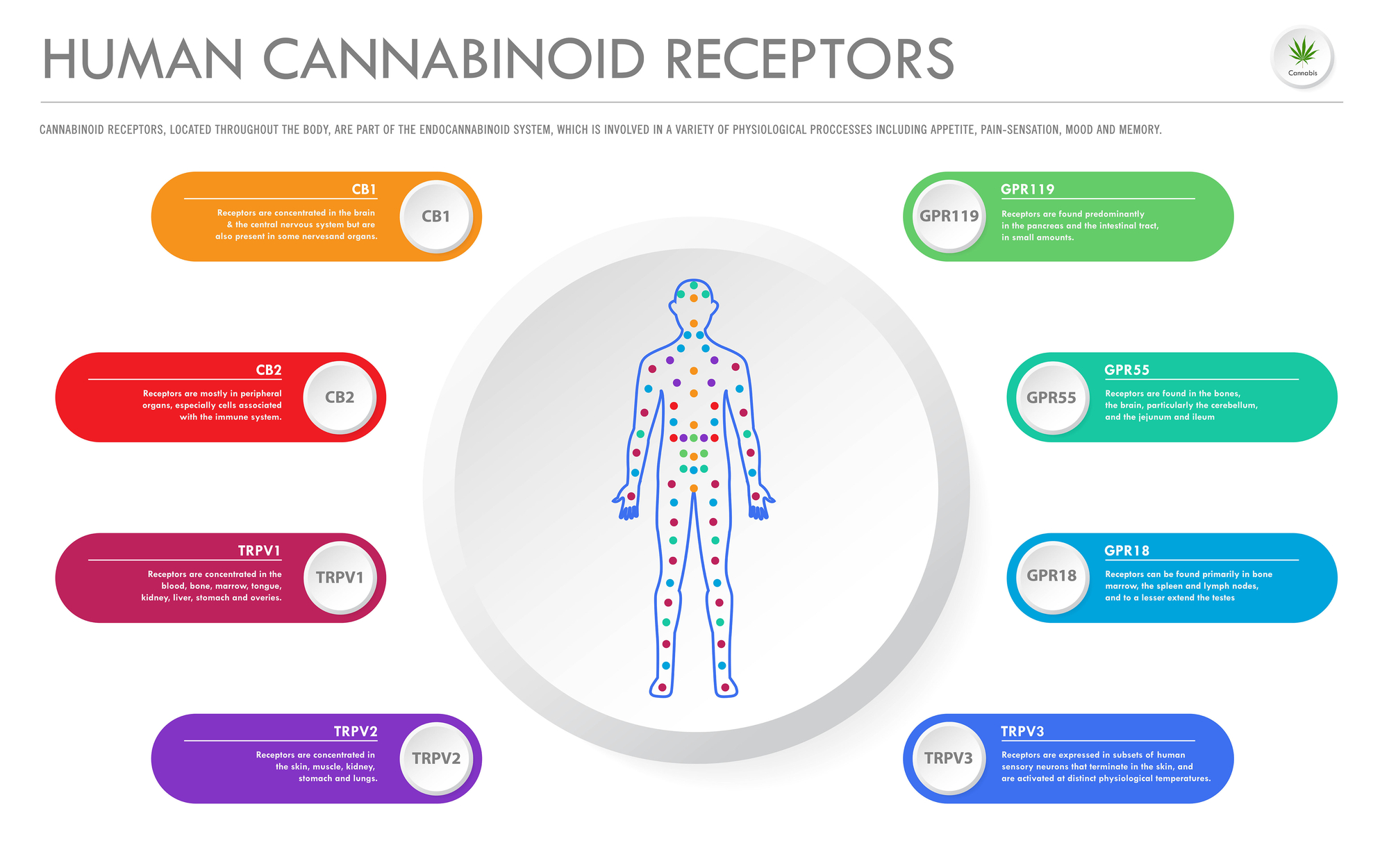
There are a few factors that determine how long weed will remain in your body:
Dose (High, Low)
Frequency of Use (Light, Moderate, Heavy)
The Route of Administration (Smoking cannabis, Dabbing, Edibles, Sublinguals, Topicals)
Product Potency (Cannabinoids, Terpenes)
For long-term, heavy use, cannabis will likely stay in your system far longer than those who have light to moderate use of cannabis. Active compounds like THC will stay present in the body's organs and fatty tissues, resulting in a residual amount that may be stored in your fat and other body tissues.
To put this in perspective when it comes to drug screenings, a light user may only be able to detect cannabis in their system 3-7 days after use. A heavy user may take up to 14-90 days to process all detectable THC and THC metabolites out of the body. Based on urine testing and drug screenings, we know that frequency of use plays a key role in how long cannabis stays in the body.
One-time Use: 1-3 days
Moderate Use (3 times a week): 5-7 days
Daily Use: 7-14 days
Heavy Use: 14-90 days
Ways to flush cannabis out of your system

There are detox remedies available over the counter. However, they mostly focus on diluting the concentration in your urine rather than removing it from your system faster. Ingredients like creatinine or B12 are added to mask the dilution but will not completely get rid of the THC, leaving you to test positive.
Truthfully, the best ways to flush remaining cannabis out of your system are:
Time & patience.
This is the most critical factor for allowing your body to run through its natural detoxifying and digestive processes.
Hydration.
Drinking plenty of water and eating a well-balanced diet can ensure a healthy and optimal digestive process, helping to eliminate THC.
Exercise.
Secondary to how the body filters out cannabis through urine and stool, sweat and breath are an excellent way to detoxify the body faster. For long-term users, it may be best not to over-exert, as burning fat tissue with THC stored may increase THC levels in the blood. This would never be enough to get you high again, but it may be troublesome for drug testing.
How long the effects last vs. how long weed remains in the body

While the effects of cannabis may only last 1-3 hours, or 4-6 on edibles, cannabis remains in the body after the effects have seemed to end.
Even though the effects have dissipated, cannabis remains in the body for days, depending on your level of use. There are a variety of different urine drug tests to detect THC, and each has a different sensitivity to detect trace levels. Below are the most common test procedures and their window of detection for THC.
Urine tests
These are the most commonly used drug screening tests in the United States. In a urine test, a small sample can detect when THC or its metabolites are present at a rate of 50 nanograms per milliliter (ng/mL). A positive urine drug test can occur if you have consumed weed within the last 3-7 days, with slight variation if you’ve only consumed cannabis once or twice, compared to long-term use.
Blood tests
Bloodwork is a less common way to test for cannabis, often occurring for toxicology reports during medical emergencies or procedures. Cannabis can show up in a blood test sample up to 3 hours or two days after use.
Hair tests
In some cases, such as military screening for security clearance, a hair test may be requested. Weed can remain in your hair far longer than most other tissue samples. It can often take up to 30-90 days to have measurable amounts of THC in your hair disappear.
Saliva tests
Another routine test for cannabis is a saliva swab. Weed can be detected up to 1-3 days after use via saliva tests, especially when vaporized or inhaled.
Tips on long-term use and tolerance breaks
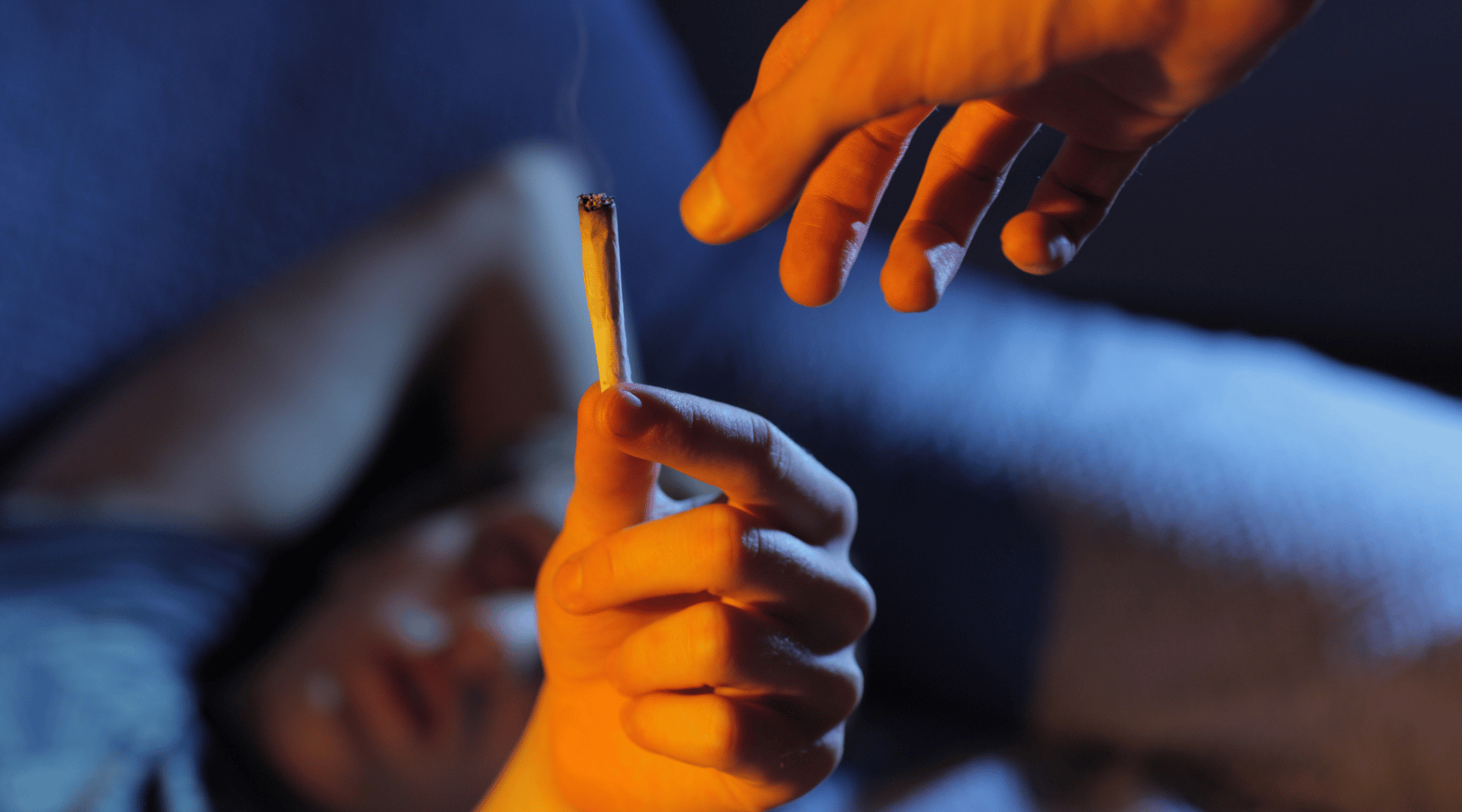
When there is a build-up of cannabis in the body, some unpleasant side effects can occur. Even if you’re not actively high, it could put you at risk for side effects like fatigue, nausea, or dizziness.
This is why many long-term cannabis users opt to take tolerance breaks from time to time. Giving yourself 2-3 week long breaks from cannabis use helps re-calibrate your tolerance so you won’t need as much product for your desired effects.
Practicing regular breaks and paying attention to how your dose affects you and how your body uniquely processes weed will help you enjoy all the benefits of cannabis without any of the adverse effects.
Frequently Asked Questions
How can drugs be detected in urine?
Drugs can be detected in urine through a process called urinalysis. This test identifies the presence of drugs or their metabolites in the urine sample, indicating recent drug use.
What's tested on a 10-panel drug test?
A 10-panel drug test typically screens for the presence of substances including cocaine, marijuana (THC), PCP (Phencyclidine), opiates (such as heroin, codeine, and morphine), methamphetamine, methadone, amphetamines, benzodiazepines, barbiturates, and tricyclic antidepressants.
Does Delta 8 show up on drug tests?
Yes, Delta 8 THC can show up on drug tests. It is metabolized by the body similarly to Delta 9 THC, which most standard drug tests look for.
How long does Delta 8 stay in your system?
The duration Delta 8 THC remains in your system varies depending on several factors, such as metabolism, frequency of use, dosage, and body composition. Generally, it can be detected in urine for up to 30 days, in blood for up to 2 days, and hair for up to 90 days. However, these time frames can differ significantly from person to person.











Searching for the best cannabis dispensaries near you? Look no further than https://designerflavorzla.com ! Our top-rated dispensary offers a curated selection of premium strains, edibles, and concentrates to suit every preference. With knowledgeable staff ready to provide personalized recommendations, your cannabis experience will be exceptional. Plus, we prioritize quality and customer satisfaction. Visit https://designerflavorzla.com today and discover why we’re the go-to spot for all your cannabis needs!
Looking to buy marijuana? https://grasshoppersla.com is your go-to destination! With a wide selection of premium strains, edibles, and concentrates, we cater to both recreational and medicinal users. Our knowledgeable staff is here to help you find the perfect product for your needs. Plus, enjoy convenient delivery options across LA. Visit https://grasshoppersla.com today and explore the best cannabis offerings in the heart of California!
Leave a comment